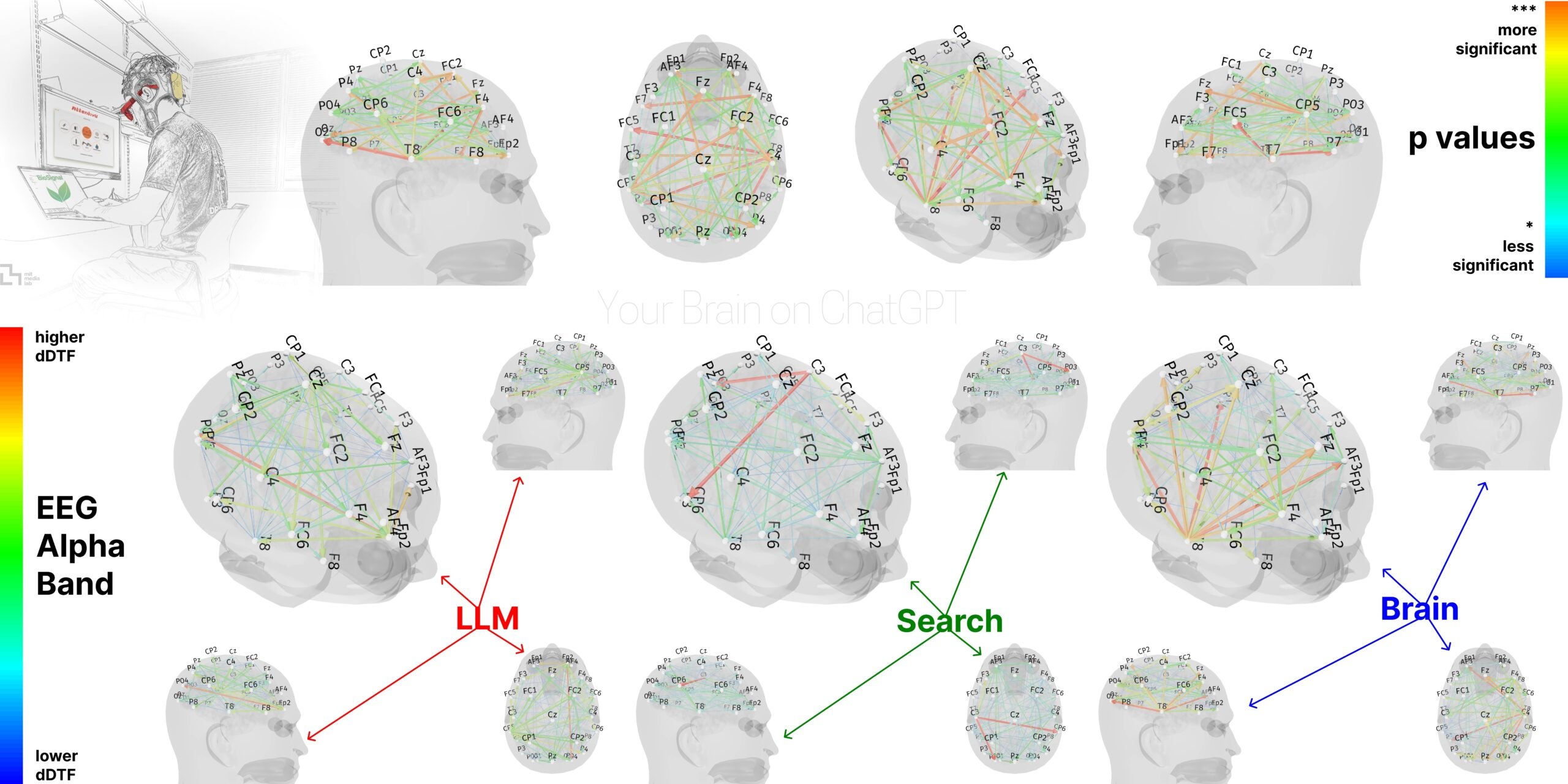New MIT study brings potential downsides of ChatGPT use to light – Boston.com

By Ross Cristantiello
Researchers at MIT studying how AI tools like ChatGPT affect learning released some notable results this week. They found that people who used ChatGPT to write a series of essays suffered a “cognitive cost” compared to others who used only their brains or a traditional search engine.
The researchers found that as users relied on “external support” more and more, their brain connectivity gradually scaled down. Subjects who began the tests using ChatGPT before being told to use only their brains showed “weaker neural connectivity” and “under-engagement” of certain networks in their brains.
On the other hand, users who started the tests using only their brains before being told to use ChatGPT to help rewrite their essays displayed “higher neural connectivity.” This, according to the researchers, suggests that rewriting an essay using AI tools after prior AI-free writing “engaged more extensive brain network interactions.”
The findings were outlined in a study that has yet to be peer-reviewed. Researchers said they decided to release their findings early instead of waiting for the time consuming peer-review process to play out because of the rapid pace at which large language models (LLMs) like ChatGPT are advancing.
As these tools become more and more advanced, students appear to be increasingly relying on them for school work. About a quarter of teenagers in the U.S. used ChatGPT for help with their schoolwork in 2024, double the share of teens that used the tool in 2023, according to the Pew Research Center.
A total of 54 participants were recruited from five Boston-area universities: Harvard, MIT, Wellesley, Tufts, and Northeastern. They were between the ages of 18 to 39. Participants were divided into three groups. One was told to use ChatGPT to help write an essay, another was told to only use a regular search engine, and the third was told to use only their brains.
Over three sessions where the groups were given the same assignment, the differing results were stark.
“The Brain‑only group exhibited the strongest, widest‑ranging networks, Search Engine group showed intermediate engagement, and LLM assistance elicited the weakest overall coupling,” researchers wrote in a summary of their findings.
By the third session, the ChatGPT group was producing “low effort” work that was mostly copied and pasted from the AI tool’s results. Some ChatGPT users struggled to quote from essays that they had just written.
Users displayed a diminished inclination to “critically evaluate” the chatbot’s output. This is causing researchers to have increasing concerns about an “echo chamber” effect where existing beliefs are continuously reinforced while contradictory evidence is filtered out.
Two English teachers were asked to evaluate the essays. Some stood out because of their “close to perfect use of language and structure.” But those essays also largely failed to offer “personal insights or clear statements.”
“These, often lengthy, essays included standard ideas, reoccurring typical formulations and statements, which made the use of AI in the writing process rather obvious. We, as English teachers, perceived these essays as ‘soulless,’” the teachers said in a statement that appeared in the study.
A fourth session was conducted on just the ChatGPT group and the brain-only group. The former was told to use only their brains for the final session, while the latter was told to use help from ChatGPT.
The “LLM-to-Brain” group “demonstrated less coordinated neural effort” and displayed a bias towards LLM-specific vocabulary. Meanwhile, the “Brain-to-LLM” participants showed “higher memory recall,” likely because they had to integrate ChatGPT’s suggestions with their existing knowledge.
The researchers said that their study should be viewed as a “preliminary” guide to understand the impacts of AI and called for more studies that examine how AI tools affect memory retention, creativity, and writing fluency over longer periods of time.
Ross Cristantiello, a general assignment news reporter for Boston.com since 2022, covers local politics, crime, the environment, and more.
Get everything you need to know to start your day, delivered right to your inbox every morning.
Be civil. Be kind.
©2025 Boston Globe Media Partners, LLC
Stay up to date with everything Boston. Receive the latest news and breaking updates, straight from our newsroom to your inbox.